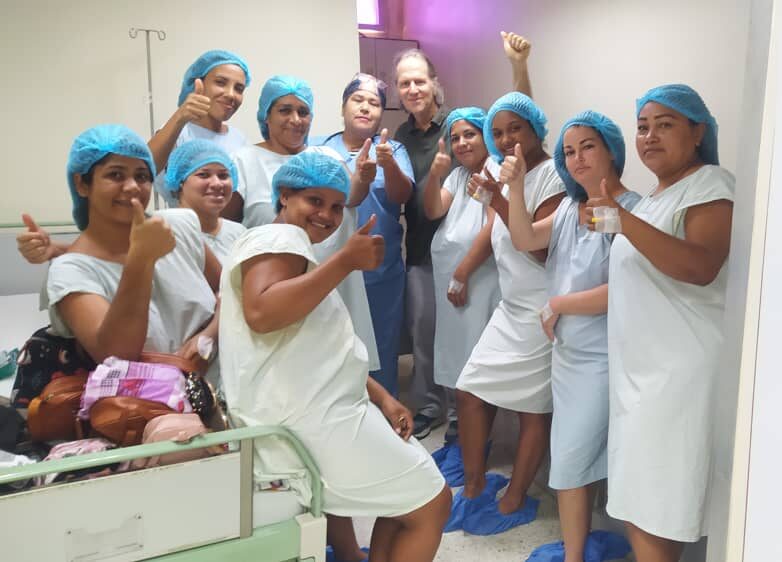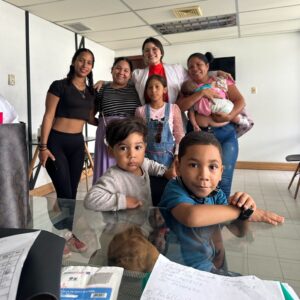Global Partners: Turimiquire Foundation
Written by Marian Starkey | Published: June 16, 2025
Photos courtesy of Turimiquire Foundation
Venezuela’s political and socioeconomic strife is well documented, but the toll it takes on the reproductive health of Venezuelan people, especially those living in remote regions, is less widely discussed. The Turimiquire Foundation works in the northeastern coastal region of the country, delivering family planning and reproductive health services and improving rural education and development for a population that’s often overlooked.

Steven Bloomstein arrived in Venezuela as a recent college graduate in 1973, part of a small group of North Americans interested in tropical fruit farming. After traveling around the country and into the Amazon, they began farming in the northeastern Caribbean state of Sucre in 1977.
Steven and his companions were soon distraught over the high maternal morbidity and mortality rates in their new home, resulting from the lack of perinatal care in their remote region and back-to-back pregnancies beginning in women’s early teenage years. They helped as they could using their own limited resources. After the particularly tragic death during childbirth of a woman in their community, and inspired by the 1994 International Conference on Population and Development in Cairo, Steven co-founded the Turimiquire Foundation. It became a 501(c)3 non-profit organization in 1996, registered in the United States and operating on the ground in Venezuela through its sister organization, Fundación ServYr (Sociedad de Educación Rural: Vida Y Reproducción, meaning Society for Rural Education, Life, and [Healthy] Reproduction), based in the small coastal town of Cumaná, about 200 miles east of Caracas.
The main focus of the organization is family planning education, counseling, and contraceptive services, but the all-Venezuelan, 95% female staff also provides other primary health care services, including selected surgeries, as well as rural education and literacy, sustainable livelihood and economic development, and humanitarian aid projects, in line with the self-identified needs of the community.

Since 1997, Turimiquire has delivered high-quality family planning services to more than 81,685 rural and low-income urban women and men. Since 2003, the organization has offered 5,293 reproductive health workshops to more than 126,510 adult and student participants. Venezuela has one of the highest teen pregnancy rates in Latin America, and the educational outreach and services that help teens to prevent unwanted pregnancy are crucial to their health, continued education, and employment prospects.
More than 50 rural high school students receive scholarships to continue their studies each year. Over 500 students have now attended high school, and over 100 have graduated — the first in their families to do so. Turimiquire runs a rural education center, as well as a small, free cyber café in Cumaná, which offers students a place to use the internet, receive tutoring, eat snacks, and socialize.
Alongside all of the incredible work Turimiquire has done in the past three decades, the original objective of the North American travelers back in 1973 lives on — they operate a farm in a roadless valley, where they cultivate and distribute unusual tropical fruits such as durian, mangosteen, jackfruit, biriba, and star fruit, in a program which offer farmers new sources of revenue and helps to reforest the degraded local landscapes.
The population of Venezuela has risen from 12 million when Steven and his friends arrived in the 1970s to roughly 28 million today — an increase of 129%. The population growth rate has dramatically declined during that period though, partially due to the remarkable level of outmigration since the country was thrown into political and economic chaos two decades ago, but also due to a steadily declining fertility rate, which now stands at just under 2.1 lifetime births per woman. Turimiquire continues to address the enormous unmet need for family planning services in this remote and beautiful corner of the country’s northeastern coast.
Turimiquire, pronounced Too-ree-mee-kee-ray, means “Seat of the Gods” in the Indigenous Carib language, and refers to the mountain range that dominates this tropical coastal area. To learn more, please visit turimiquire.org.
Marian Starkey, mstarkey@popconnect.org
